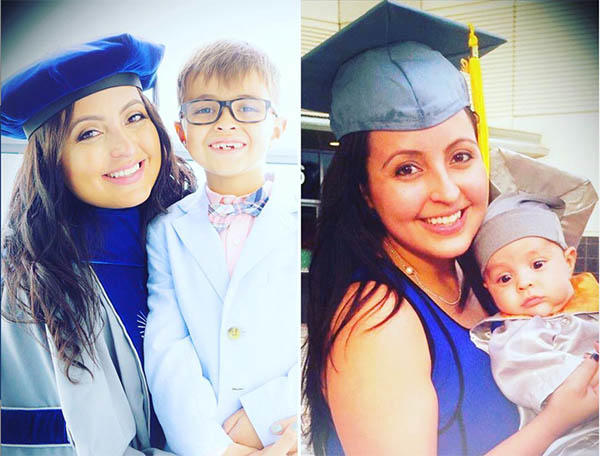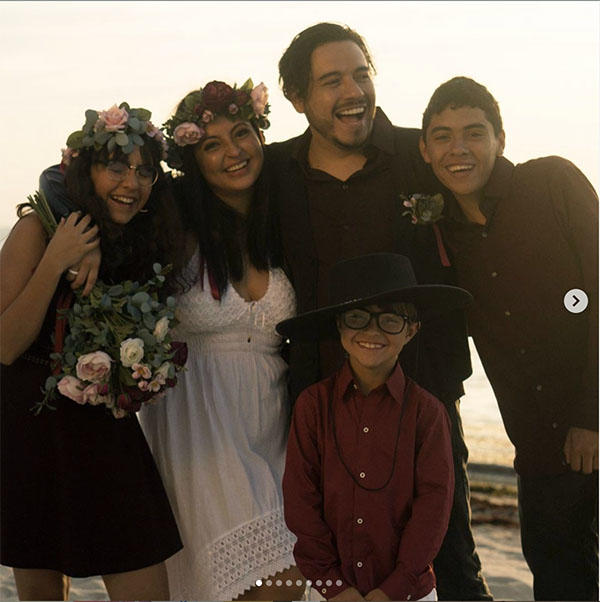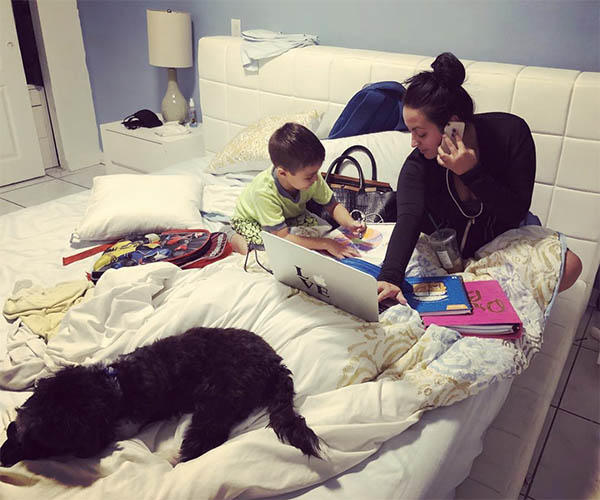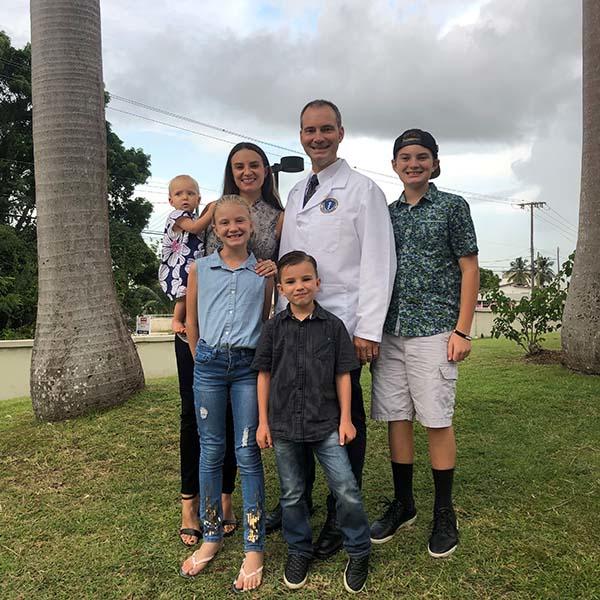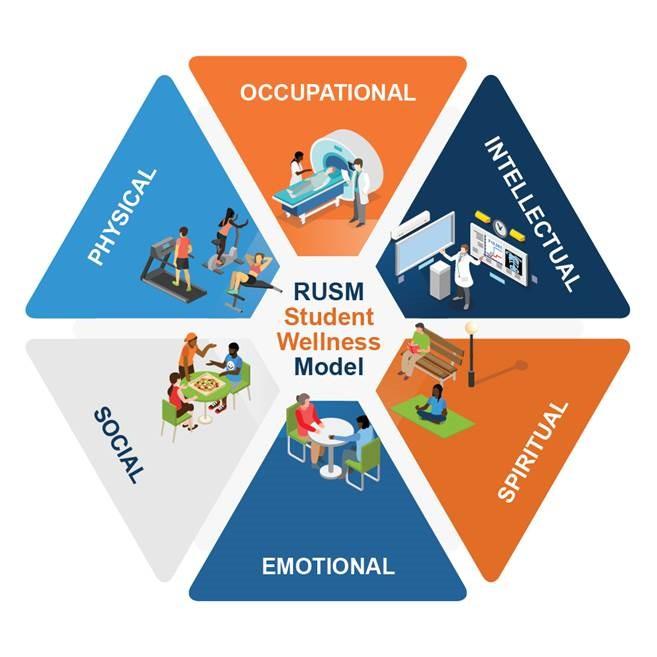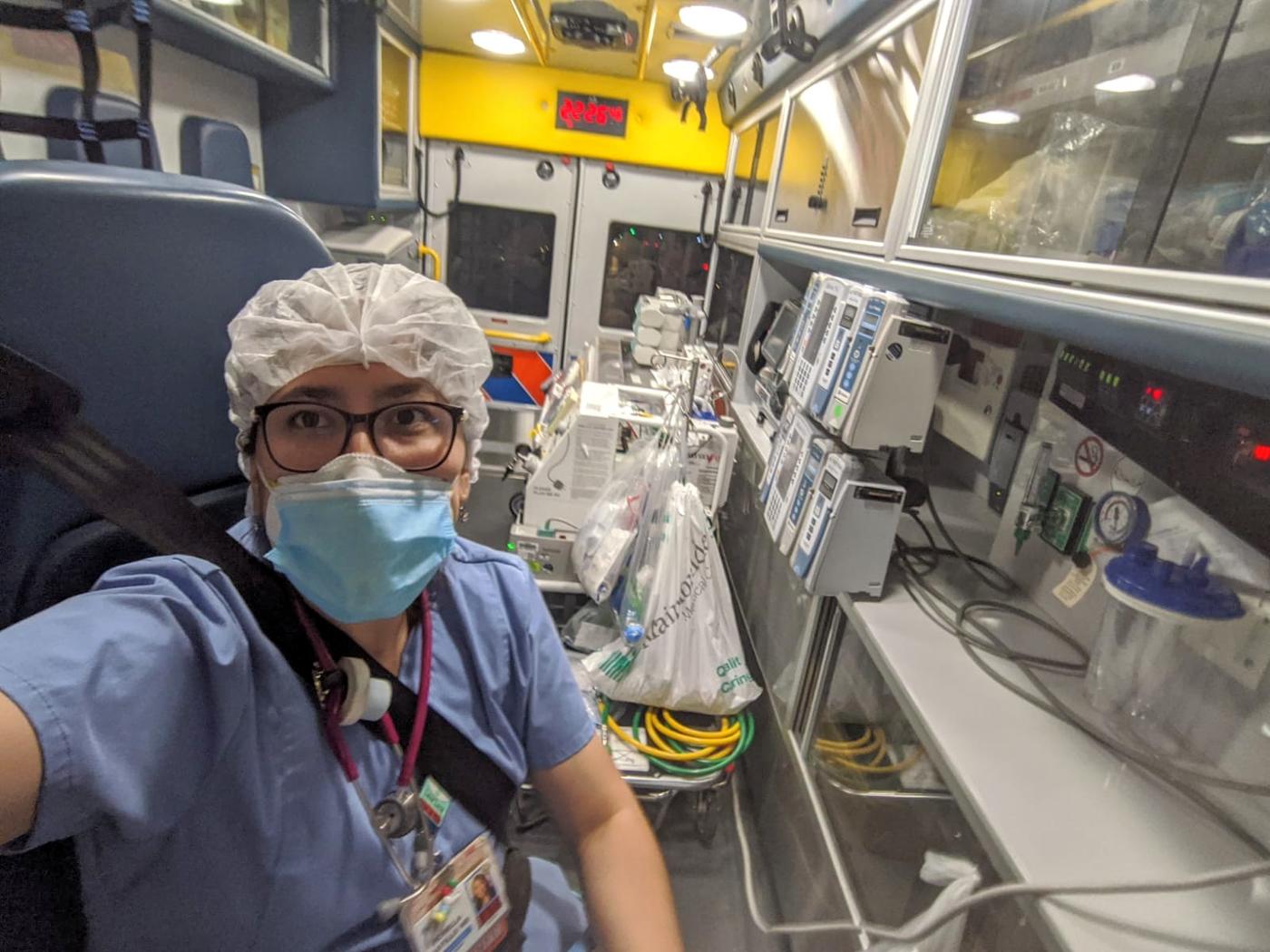The anxiety merry-go-round is draining but not being able to control or break free from the constant spin can crush the spirit and create havoc on the body. Painfully aware of this reality is Ross University School of Medicine (RUSM) Wellness Counselor Maria Angelica Mejia, PhD, LMFT, who knows firsthand the atrocities of burn out and the importance of creating a ‘new normal’ for future physicians.
“I have constantly been afraid of doing the wrong thing since I was eight years old and we had to leave everything behind,” said the Colombian native whose family was forced to abruptly flee the country because of kidnapping attempts and violence. That was four years after she witnessed her first traumatic event in which her then pregnant mother almost died, which caused Mejia to develop a stutter. “It was the first time I experienced anxiety. When we moved to the United States and had to adapt to this culture, I was told failure was not an option, so I always had the pressure of being the perfect, ideal student. I thought if I just keep busy, I can manage my anxiety.”
At the time, mental illness was not a subject readily discussed so Mejia found creative ways to fill her day, not allowing herself moments of quiet because that may trigger an attack. She started working at a shopping mall at 14 years old; her schedule consisted of school from 7 am to 3 pm, work from 5 to 10 pm, homework from 11 pm to 1 am, then sleep and repeat. “The more I kept busy, the more I thought I was keeping ahead of the anxiety. I started getting physically sick but not too much.”
Events Caused Relapse
Her parents’ divorce brought the stutter back and started a new symptom — social anxiety. Her go-to solution — diving into academics and working exhaustively — led to respiratory illnesses and heart palpitations. Trying a rigorous exercise routine resulted in broken tendons. It wasn’t until pregnancy that Mejia realized her actions could have dire consequences. “People praised me saying I was superwoman, and it fueled the toxic cycle until I realized the person who was going to suffer most was my baby.” The therapist-in-training began prenatal yoga and hypnosis birthing techniques. After welcoming a son, she returned to her normal fast-paced routine, but it backfired. That’s when she met the doctor who changed her world.
“It was the first time someone took my full history and saw me as a patient who deserved attention; he didn’t judge me as a minority female who fit the stereotype of a drug user or seeker, a tired mom, a stressed-out student, an emotional woman or someone on state aid. Always advocate for yourself and seek different opinions if you don’t feel heard.”
Championing for Herself
That doctor opened Mejia’s eyes to the importance of her personal wellness and the negative impacts of burn out. “I’ve always been an advocate for mental health but never with me. That’s not ok. This is real. I realized I had to manage my anxiety and make intense lifestyle changes if I wanted to keep living.”
Mejia is now healthy, thanks to a great support system, a mental shift in how society values hard work and daily recognition of her triggers — especially at night when her mind becomes active. She takes meal breaks, stops work on time, exercises and meditates with her 10-year-old son. She still has bad days but no longer feels as though she’s stuck in a funk.
Paying it Forward
Using her lifelong struggle as motivation to educate and demonstrate resilience, Mejia focused her academic research on burnout and interventions, and now counsels future physicians. She explains to students that being praised for excessive work is counterproductive; instead, she encourages them to slow down, practice wellness, implement lifestyle changes and learn coping skills.
“Perfection is not possible, and failure is not a character deficit; it doesn’t mean you’re broken. It’s inevitable and we all need to learn how to grow from it. You’re not a failure if you ask for help; we’re social beings and asking for help is human. I felt like I was running a race that had no end; to not feel, I would push through the physical and mental pain to the point of numbness. Now I pick myself up. I’m still going fast but at 20 or 30 miles per hour, not 100. And I am no longer afraid of my thoughts and feelings.”
Two years ago, Mejia joined RUSM. “I need to be the voice of reason for our students. If I help one future doctor become like the one who helped me, then thousands of people can be truly supported in their lifetime.”
RUSM Support / Resources
Please visit the RUSM Wellness & Counseling Center webpage to learn about upcoming wellness sessions and email the Center to schedule a free and confidential appointment. If you need additional support, please call the Substance Abuse and Mental Health Services Administration (SAMHSA) national hotline at 1-800-662-HELP (4357) in the United States or Support Services Counseling at 246-245-1622 in Barbados.

